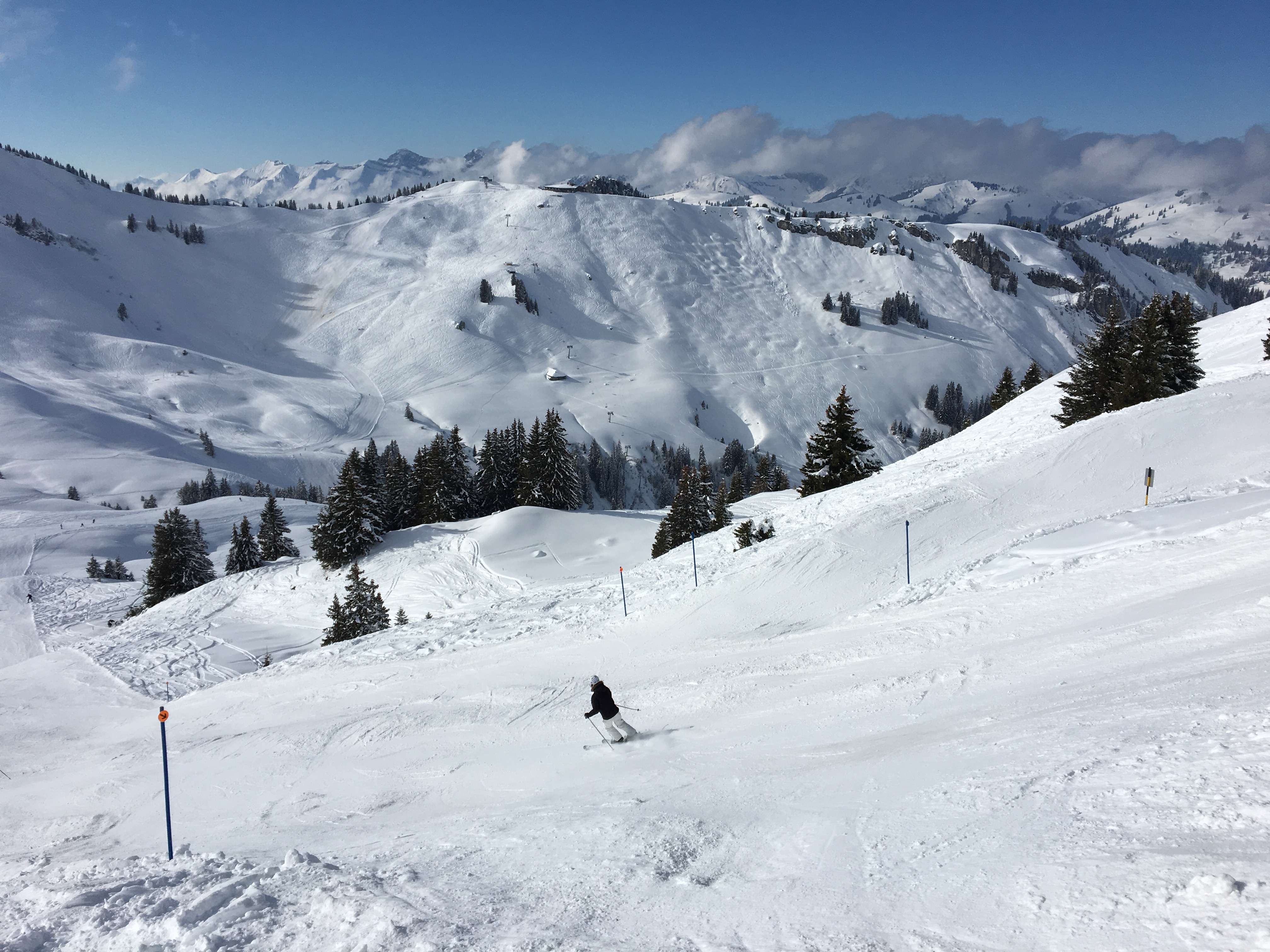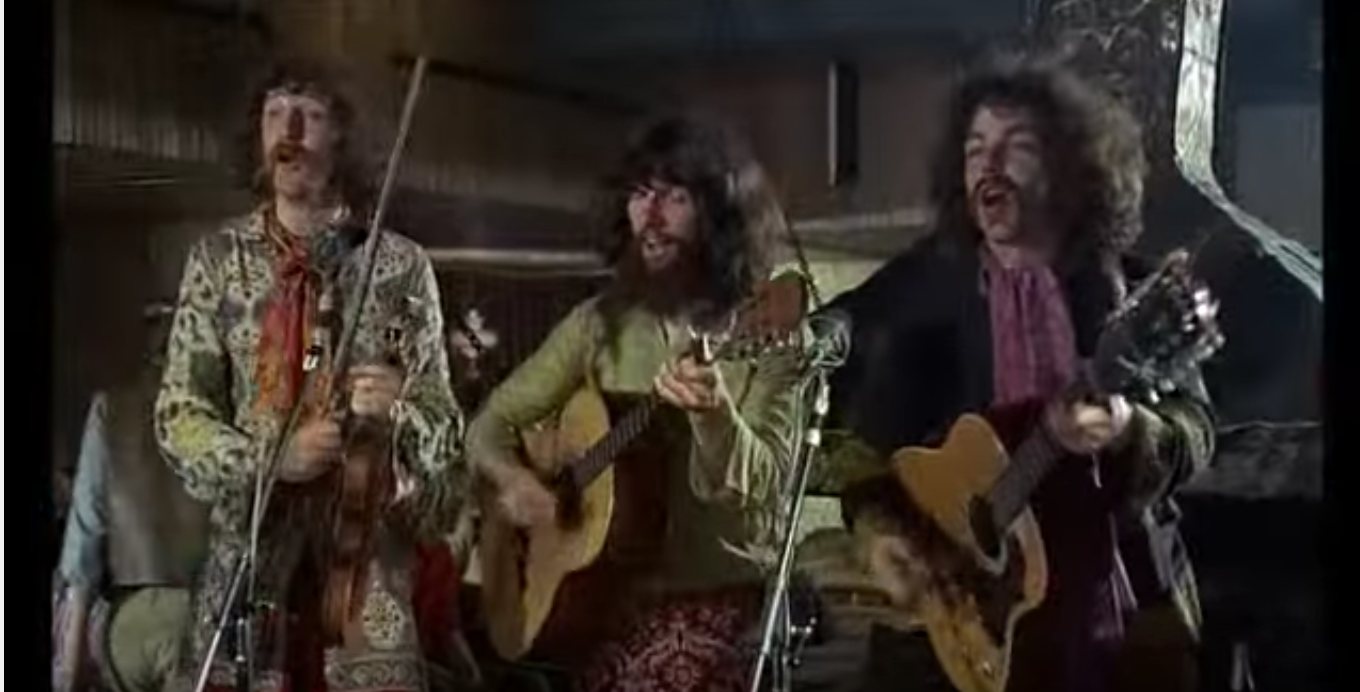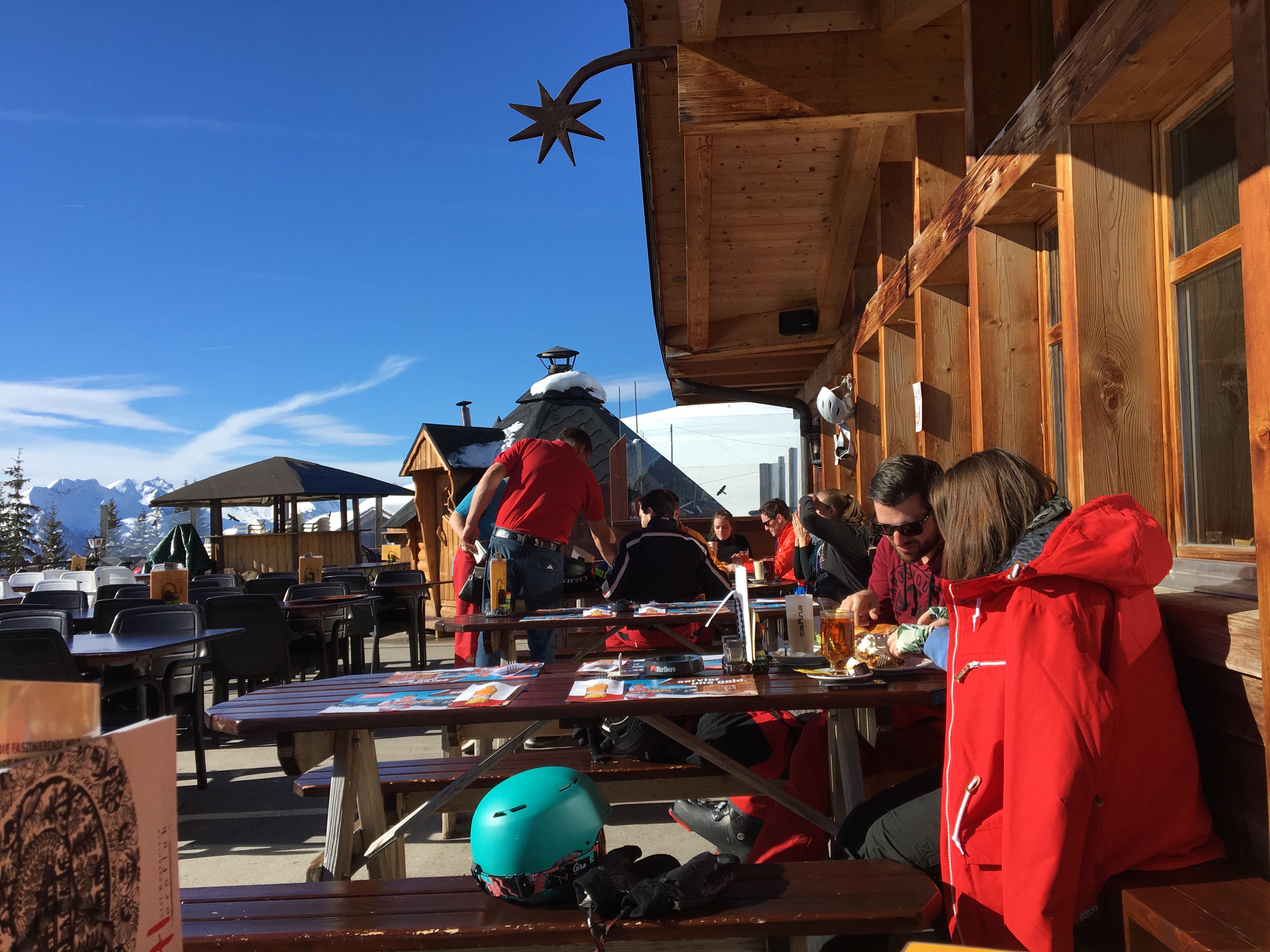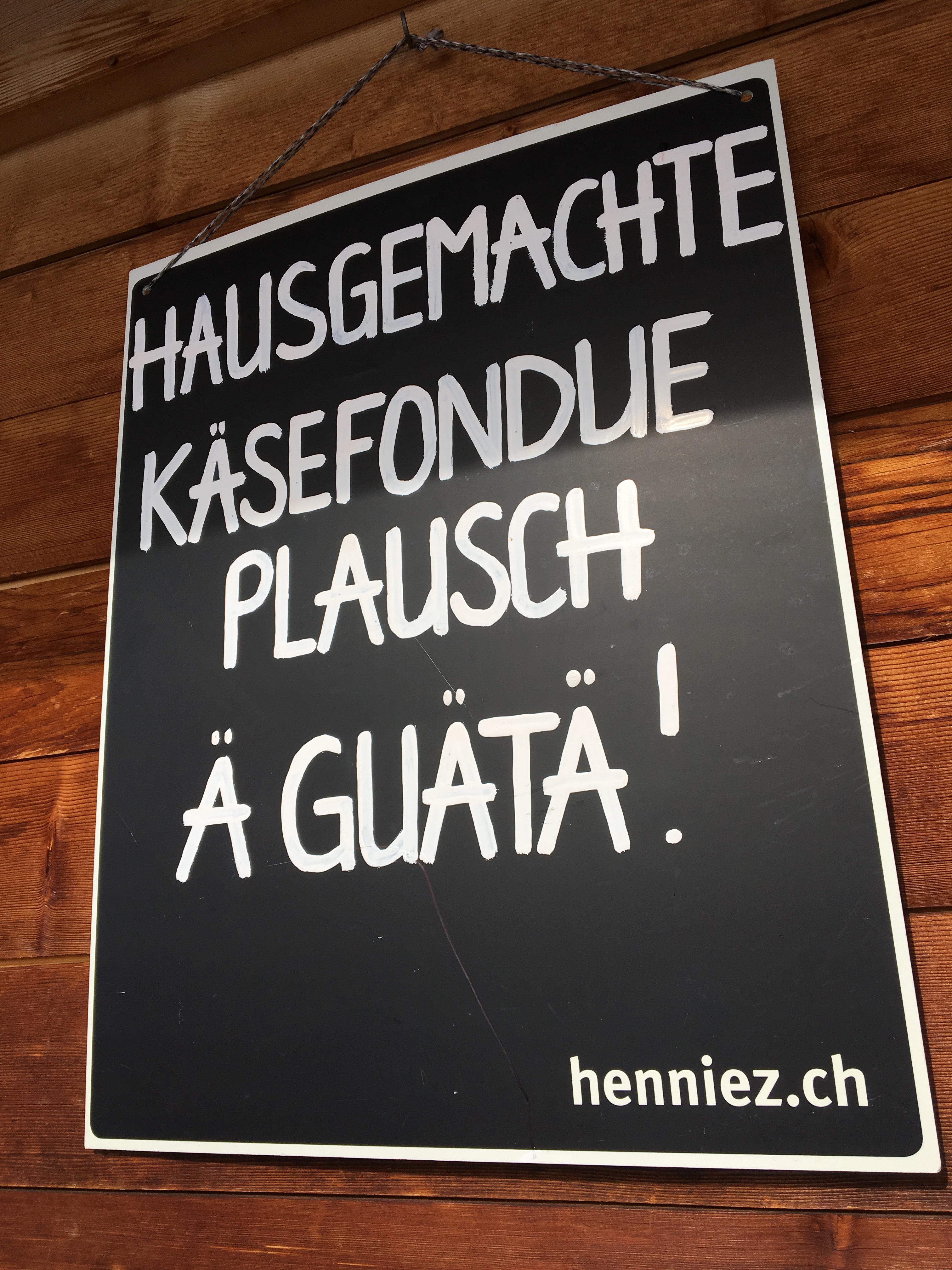“Grüezi” and Other Swiss German Expressions
 In our previous post, we focused on the bilingualism of many Fribourgers. The German spoken in Fribourg is clearly of the Swiss German variety, with a few French expressions mixed in at times.
In our previous post, we focused on the bilingualism of many Fribourgers. The German spoken in Fribourg is clearly of the Swiss German variety, with a few French expressions mixed in at times.
(Indeed, as we explain in our post Swiss German Dialects: A Real Challenge for German Learners, there are quite a few variations of "Swiss German".)
And while Swiss German is the generic label for the dialect, there are plenty of regional differences that a foreigner would only detect after a while. When you're traveling in countries where you speak the language, you may notice that both formal and informal greetings often vary from region to region.
For example, when we were traveling in Northern Germany a couple years ago (see our post: From Utrecht to Hamburg: Dialects and Travel Tips in Northern German), we first couldn't make out the informal greeting we heard everywhere: “Moin.” We first thought it was an abbreviation of “Morgen,” as in “Guten Morgen” (Good morning), but it was clearly used all day.
Digging a little further, we found that while “morgen” may be one etymological explanation for “Moin,” another one could be the Dutch, Frisian, and Low German word “moi,” meaning “beautiful” or “good.”
This week we are exploring a few Swiss German expressions we encountered while skiing in the "Berner Oberland". (Above picture of "Saaner's Loch)
“Grüezi” and a Swiss German Ear-Worm
 To get a little taste of the Swiss German language listen to this YouTube Video of “Ja grüezi wohl Frau Stirnimaa”, a popular song by a Swiss group, The Minstrels, from the late 60s. It was the #1 song in Switzerland in 1969 for 10 weeks, made it to #3 in Germany, and sold over 1.5 million copies in 27 countries.
To get a little taste of the Swiss German language listen to this YouTube Video of “Ja grüezi wohl Frau Stirnimaa”, a popular song by a Swiss group, The Minstrels, from the late 60s. It was the #1 song in Switzerland in 1969 for 10 weeks, made it to #3 in Germany, and sold over 1.5 million copies in 27 countries.
Mario Feurer, who wrote the song, grew up in Zurich. Even if you know some German, you'll have a hard time understanding the simple refrain. But if you listen to it a few times, you'll start distinguishing verbs, their grammatical modifications. You'll also pick up a few Swiss German idiosyncrasies.
The Lyrics, Standard German, and English Translation
Ja grüezi wohl Frau Stirnimaa
(Ja grüß sie wohl, Frau Stirnimaa)
(Hello there, Ms Stirnimaa)
Sagget sie, wie labbet sie, wie sind sie de so dra?
(Sagen Sie, wie leben Sie, wie sind Sie denn so dran?)
(Tell me, how's life, how's it going?)
Grüezi wohl Frau Stirnimaa
Sagget sie, wie labbet sie, wie gaht's denn ihre Ma?
(Sagen Sie, wie leben Sie, wie geht es ihrem Mann?)
(Tell me, how's life, how's your husband doing?)
Quick note: There is no standard written form of Swiss German. Letters and letter combinations mostly just express the way words sound.
And while you'll notice how the verb forms and endings are different from Standard German and hear how the “n” and “m” endings are dropped, we won't try to explain much more. Just listen to the melody of the Swiss German language.
Swiss German in the Berner Oberland
 This week the public schools in the canton of Bern have vacation, and besides a little French, we hear mostly Swiss German in the villages and on the mountain between Zweisimmen and Gstaad.
This week the public schools in the canton of Bern have vacation, and besides a little French, we hear mostly Swiss German in the villages and on the mountain between Zweisimmen and Gstaad.
Even for us German speakers, some of the Swiss German we come across is a little hard to understand. Briefly: In general, the dialects spoken in Switzerland (collectively called Swiss German) belong to the Alemannic variety of German.
Greetings: “Grüezi” vs. “Grüess eech”
Grüezi is arguably the most well-known Swiss German greeting. It's an abbreviation of “Gott grüez i” or literally in German: “Gott grüß euch”. (May God greet you.)
A variation of “Grüezi” is “Grüezi mitenand,” with “mitenand” (“miteinander” - together) making it clear that the greeting is for more than one person. This greeting is used mainly in the Zurich area and in the east of Switzerland.
In the western part, around Bern, it's more common to hear “Grüss eech,” which also means literally: Gott grüß euch. Indeed, here in the Berner Oberland, we've been hearing “Grüss eech” or “Grüess eech mitenand,” all over the place: when entering a restaurant, going into a shop, when sharing a gondola or chair lift with others. People even greet you as you're walking in the village.
In a restaurant: the verb “sein” - “sii” and “gsi” (or “gsy”)
Today, we ate on the terrace of a mountain restaurant. After greeting us “Grüess eech mitenand,” our waitress asked: “Was derfs sii?” - Was darf es sein? (Lit: What may it be? Meaning: What can I get you?)
When we finished our meal and she started to clear the table, she asked: “S isch guat gsi?” - Ist es gut gewesen? (Lit: Was it good? Meaning: How was the meal?)
Swiss German uses a shorter and older form of the verb “sein.” Instead of “sein,” it's “sii”, and instead of “gewesen,” it's “gsi.”
Meal time: “Ä Guätä!”
 It was a beautiful, sunny day and the terrace was crowded. So, as is typical for many European countries, we shared our table with other restaurant guests.
It was a beautiful, sunny day and the terrace was crowded. So, as is typical for many European countries, we shared our table with other restaurant guests.
We ordered “Röschti” (Rösti), which are fried potatoes prepared in a typical way in Switzerland. A meal of Röschti comes in all kinds of combinations: with a fried egg, with ham, with vegetables, etc.
Note also: The letter combination “st” (appearing anywhere in a word) is pronounced “sch.” The German word “ist” becomes “isch” (the -t is dropped)
We were served first, and when our meal arrived, our table neighbors wished us “Ä Guätä!” This is literally, “(Have) a good one!” and best translates to “Enjoy your meal!” The equivalent in Standard German would be: Guten Appetit! literally: Good appetite!
When we finished and were ready to leave, while our table neighbors received their meals, we wished them “Ä Guätä!”
Other useful words and phrases we heard
• Sali. We often heard teenagers saying “Sali” or “Sali mitenand.” - Hallo, alle. - Hi everybody. “Sali” is less formal than the greeting “Grüezi.” It comes from the French “salut” (hi/hey).
• Merci. The French “Merci” (thank you) has been appropriated by Swiss German as well, and you hear it alone or also as “Merci vilmals” - Vielen Dank (Thanks a lot).
• Uf widaluege. The German “Auf Wiedersehen” (Goodbye) has the Swiss German equivalent of “Uf widaluege,” and means the same, “luege” - sehen (to look).
• Ich lüt dir a. Probably a leftover from the old telephone technology of bells, if you want to say “I'll call you,” you'd say “Ich lüt dir a.” This literally means: Ich leute dich an, or Ich leute bei dir an (I'll ring you.)
For more Swiss German expressions (Berndeutsch) see also our previous posts Swiss German Language Lessons in Gstaad (1) and (2).
Don't Despair
If you're just learning German and are trying to understand Swiss German, don't despair. Even native Germans have a tough time understanding rapidly spoken Swiss German, even more so speaking it. But as with any language or dialect you want to learn, there are many ways to do it.
Here are three iPhone apps that will help you: Grüezi Switzerland (free), Schweizerdeutsch Lernen (in app purchases), and uTalk Classic Learn Swiss German (in app purchases). We have not tried any of these yet, so let us know what you think below.
Bio: Ulrike & Peter Rettig are co-founders of Gamesforlanguage.com. They are lifelong language learners, growing up in several European countries before moving to Canada and the United States. You can follow them on Facebook, Twitter, and Instagram.
